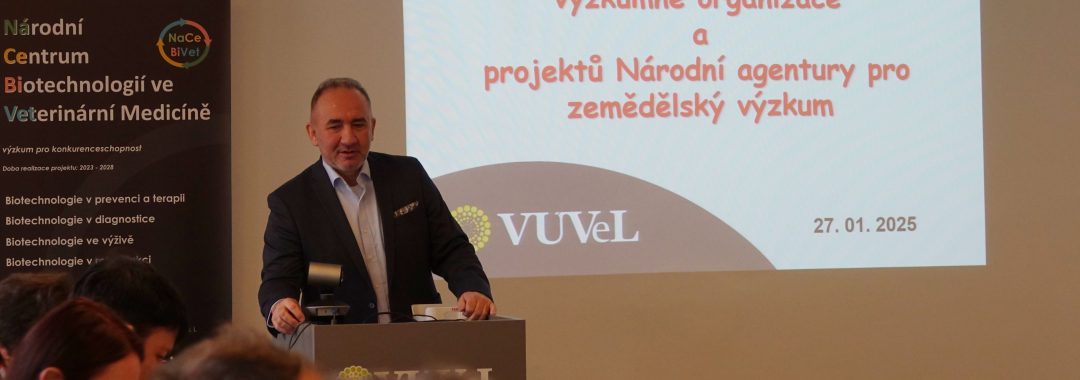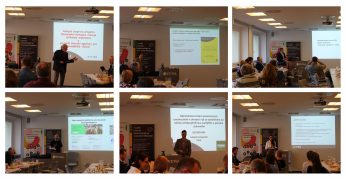As in previous years, public discussions were held this year in the VRI Lecture Room on the periodic report regarding the implementation of activities within the Long-term Conceptual Development of the Research Organisation (LCDRO) for the period of 2023–2027, as well as on the periodic and final reports of projects funded by the National Agency for Agricultural Research, in which the Institute is the Recipient.
The meeting was opened by the Institute's Director, Dr. Faldyna, who introduced the members of the review board and the guests. In his presentation, he recounted the history of the LCDRO project’s inception and its importance in supporting the Institute's operation and achieving partial goals in further development in the fields of science, transfer to practical effect, projects, and growth. He also emphasized the fact that the Institute's existence is only possible due to its employees' ability to succeed in public contests launched by providers of special support and to conduct contract research with added value.
Dr. Faldyna continued with a presentation of the basic data on the implementation of the LCDRO project for 2024. The project was implemented within the framework of 7 research sub-plans: (1) Infectious Diseases; (2) Immunology and Preventive Medicine; (3) Diagnostics, Antimicrobials, and Probiotics; (4) Genetics and Reproduction of Farm Animals; (5) Experimental and Pharmacological Toxicology; (6) Modern Drug Forms and Pharmacology; and (7) National Sustainability Plan. The implementation of individual research activities led to the generation of knowledge and insights which were applied as planned, through publications in journals with impact factors, as outcomes for the veterinary and agricultural communities, or as practical applications. These advances and their further use by practical users were positively assessed in the reviewer's comments prepared by Prof. MVDr. František Treml, CSc. Subsequently. Dr. Faldyna addressed two questions from the reviewer's comments and explained the importance of the National Competence Centre project NaCeBiVet, funded by the Technology Agency of the Czech Republic. He also highlighted the steps the Institute is taking to implement Open Science policies. Finally, he expressed gratitude to everybody who contributed to the successful implementation of the LCDRO project, as well as of all the special support projects that have been, are, and will be carried out at the Institute.
The second part of the programme focused on public discussions regarding ten periodic reports and two final reports of projects funded by the National Agency for Agricultural Research. These projects were implemented in 2024 and the Institute was the subsidy Recipient. Their topics encompass a broad range of the Institute's scientific focus, spanning from poultry health to ruminants, pigs, and fish. Some of the most noteworthy results achieved in 2024 include, for example, probiotic mixtures for piglets or chicks, along with preventive and therapeutic approaches for controlling parasitic diseases.
Thanks to all these efforts, it can be stated that in 2024, the Institute successfully fulfilled its mission of contributing to the sustainability of animal production and healthy animal herds.



